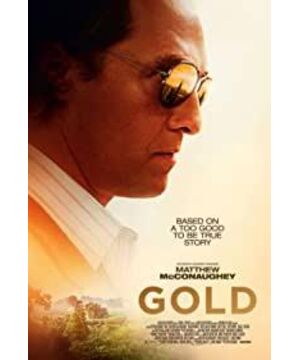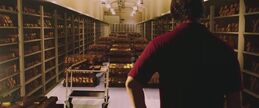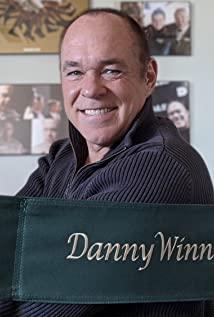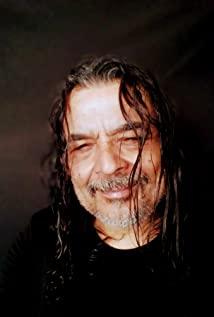"Gold Mine" is a film directed by director Stephen Gahan in 2016. The director tried to tell two stories through the film. One is the inspiration of Kenny Wells, a son of a wealthy prospector, who insisted on his belief in poverty and finally found a "gold mine". The other story is that Wells "collaborated" with geologist Mike Acosta to forge a "gold mine" that swept away $160 million in a shocking fraud case. The reason why the film did not receive rave reviews is that the inspirational stories are told in a straightforward manner, simple and direct, without ups and downs. The fraud story is told in a subtle and restrained way, with too fast turning points and a slightly sloppy ending. Nonetheless, the film's unconventional narrative attempt is indeed very novel. There are many foreshadowings in the film, so that the grass snake and gray line stretches for thousands of miles. Many people even have to look back to clarify the hidden context. The film does not explain whether Wells participated in the fraud, and the open ending also makes people imagine.
There is still controversy over whether Wells was involved in the fraud, and it is not difficult to see from the design of the film and the prototype of the film that he was involved in the fraud. The most intriguing, and most intriguing aspect of the film, is when Wells is involved in the scam, which is what an open ending is intended to do.
From the very beginning of the film, Wells, as the narrator, recalled his experience of prospecting in Indonesia. As the heir of the three-generation prospecting industry, Wells took over the Washoe Mining Company from his father. Maybe it was bad luck, maybe it was because of bad luck. The economy was sluggish, and he had never been able to explore mines or get investment. After the company went public, the stock price fell all the way to 5 cents, becoming a junk stock. Deprived, the company has moved to a bar, and his wife has even found a job in a furniture store for Wells.
Wells was reluctant to accept fate, and he didn't want to admit defeat. He had a dream, a "real" dream. I dreamed of gold mines in Indonesia, and I dreamed of Acosta, a geologist who discovered the world's largest copper mine in Indonesia with his own theory of "volcanic seismic zone". After waking up, Wells went to Indonesia to find Acosta for his dream (in his dream) and wanted to convince him to explore mines together. Acosta looked at Wells, who was slightly drunk in the hotel lobby, and frankly said that the theory of volcanic seismic belts had been criticized as a piece of shit by well-known scholars, and no one believed him now. However, he said the first quote in the film "There is no right or wrong in our line, only found and not found".
Although Acosta didn't believe Wells in the cheap suit, he took him to the gold prospecting site. They went upstream and saw many villagers sifting gold in the river sand on both sides of the river. When he learned that the name of the river was Daya Kensana (with gold upstream), Wells questioned, "Do you just rely on this river's name?" The intuition of the film said the second line of the film "I sell what I really believe". He raised start-up capital by selling stocks to hawkers and pimps, and officially embarked on a gold rush journey. The theory he sells is storytelling, and the protagonist of the story is Acosta.
The process of drilling gold mines in the tropical jungle can be described as arduous. The test results of the drilling samples are getting worse each time, and there is not enough gold content. The workers also leave because of unpaid wages. To make matters worse, Wells had malaria, and he told Acosta "don't let me die for nothing" when he was on the brink. Perhaps at this moment, the "turning point" came. Wells woke up from a coma, and Acosta told him a big news. The new test results detected the gold in the sample. This will be the world's largest gold mine.
Everything seemed to come out of the gate, and Wells got a $10 million investment first. Under the circumstances of smooth sailing, he did not forget to remind the old employees around him that you need to sell some stocks in your hands and plan for bad. With the support of Brown & Thomas, the largest mining oil group in New York, the stock of Washoe Mining was listed on the New York Stock Exchange. At this time, Qian Cheng has become a number, and the stock has skyrocketed and performed the best year.
Then came the troubles brought by Duojin, the seduction of female public relations, the conspiracy of husband and wife, and the calculations of the consortium. Wells experienced all kinds of tests that inspirational success faced. It is unreasonable that his wife left him and returned to the tavern to entertain when he had just succeeded, which also left a foreshadowing for the ending. Then it was unreasonable. The consortium wanted to invest 300 million US dollars to buy the shares in Wells' hands and the naming rights of the mining company. Wells refused, and the rejection was very sensational. Prospecting was his dream and could not be discussed. To be named in history. So much so that the boss of the consortium expressed a trace of admiration. Many viewers therefore concluded that Wells was unaware of the fake gold samples.
The deal failed, and the consortium's counterattack was simple and rude, relying on political influence to find the Indonesian dictator Suharto to send the army to take over the gold mine. Washoe stock plummeted, and Wells was left with nothing. At a critical moment, Acosta found Wells who was drunk and told him that he was looking for bauxite, and the car got stuck halfway and could not move forward, so he had to drill on the spot and found copper, not relying on any theory. Wells said the third quote of the film, "You went to the aluminum mine but found a copper mine, I went to the gold mine and found a friend", and then left a foreshadowing for the ending.
Wells and Acosta started to fight back. The method was very simple. They found that Suharto's youngest son gave up 85% of the shares and took back the mining rights. After turning over again, Wells gained fame and fortune and won the Prospector Award from the Mining Association. In his acceptance speech, he talked a lot, "What is a prospector, that is, a person who believes in the existence of gold mines, but it does not exist..."
Just climbed to the peak, and the liquidation also followed. The sample fraud was exposed, and there was no gold mine at all. Stock suspension, retail siege, FBI investigation. Acosta sold the stock in a timely manner, cashing out 160 million. Of course, Suharto's youngest son also won a huge fortune by reducing his holdings. Only Wells was investigated by the FBI without a penny, and next to the film is his account of the investigation. In other words, the whole film is just a complete story, told by Wells.
Falsehood is true and false. The aforementioned inspirational story deceived the audience and the FBI, and Wells was found innocent. In the end, Wells returned to his wife's house, and his wife took in him, who was once again destitute, regardless of his previous suspicions, and took out the letter mailed to him. Inside the envelope was a check for $80 million and a napkin with which Acosta had originally written the 50 percent share agreement.
The film left an open ending. Whether Wells participated in the fraud drama did not give a clear answer. When the two began to cheat, the audience needs to find the answer by themselves. Perhaps from the very beginning "dreaming", Wells has already laid out a big game. An extrajudicial place far from the United States, a legendary geologist, a set of mysterious theories, a successful prospecting example, a mining company trying to turn over. Add in the magic of the Gold Rush Dream and everything is so perfect.
All that is left is the performance, and Wells is good at telling stories, telling stories he believes in. If you have gold in your heart, you have a gold mine. Maybe the gold mine is an illusion. If you believe in it, it is there. He has shaped himself into an ideal and persistent practitioner, and his indomitable gold-seeking journey is full of legends. That's why he didn't seem abrupt when he turned down a $300 million takeover, and why the FBI found his story impeccable.
Whether Wells laid out this big chess game at the beginning, or made an intention in the middle of it, changing from real digging to real deception requires acting skills. To deceive people first, you must deceive yourself. Only the deception that he believes in is the most lethal. After watching this film, you should probably understand, don't be gullible, and don't be easily moved by grand-sounding theories, passionate forge ahead, unremitting efforts, and huge returns.
by the way: Some people think that it is unreasonable to ask for 80 million instead of 300 million. In fact, if you think about it, the acquisition is not directly cashed in cash. Once the control is handed over, the fraud will be revealed immediately, and even if you get 300 million, it will be If you can't wash yourself, the money you get will still be recovered.
View more about Gold reviews











